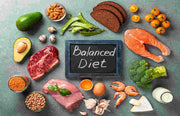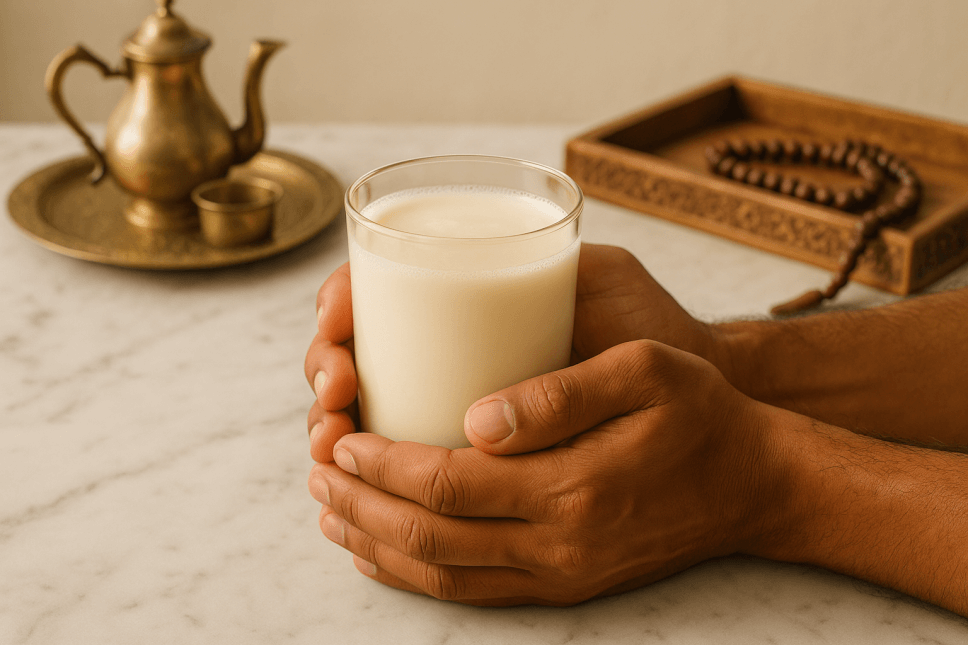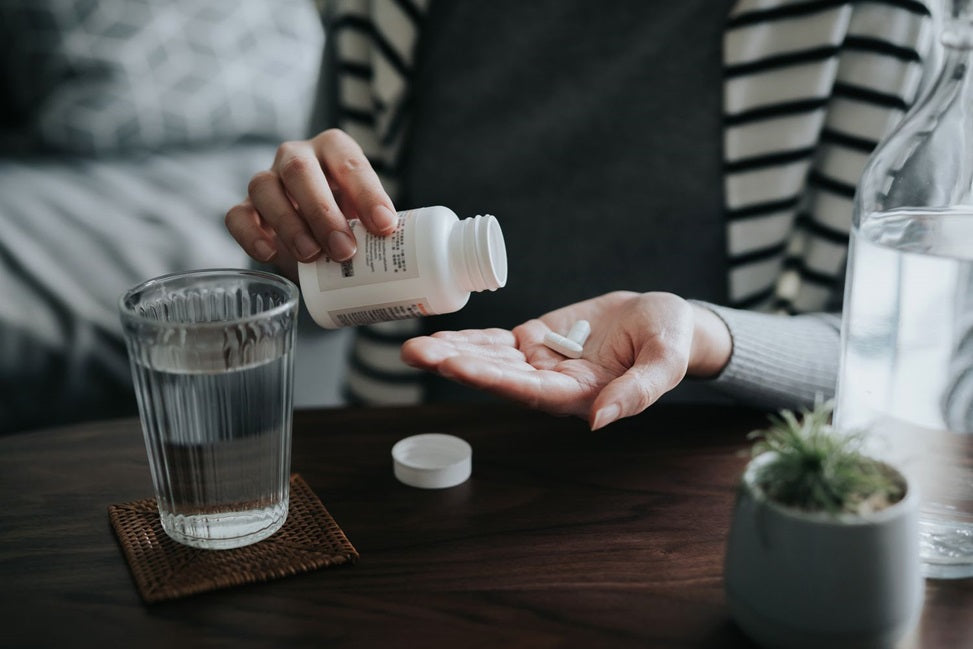
PCOS-Friendly Diet: What to Eat and What to Avoid
Introduction: Healing of Hormones from the Inside Out 🌱
Polycystic Ovary Syndrome (PCOS) affects up to 1 in 10 women of reproductive age, bringing with it a host of symptoms—irregular periods, weight gain, bloating, acne, and hormonal imbalances. If you're tired of feeling uncomfortable in your own body and want to look smart naturally without extreme diets, the answer might be on your plate.
A PCOS-friendly diet can reduce inflammation, stabilize insulin, balance hormones, and support healthy weight loss. In this blog, you'll learn what to eat, what to avoid, and how to craft a PCOS meal plan that nourishes your body and heals it from within.
What is a PCOS Diet?
A Science-Backed Nutrition Strategy for Hormonal Balance
A PCOS diet is a nutrient-dense, low-inflammatory eating plan that focuses on low-GI (glycemic index) foods, anti-inflammatory ingredients, and balanced macros to support insulin regulation and hormone health.
According to a 2023 study published in the Journal of Endocrinology, insulin resistance is a root issue in nearly 70% of women with PCOS, making dietary changes a cornerstone of effective management.
What to Eat for PCOS: The Ultimate PCOS-Friendly Food List
The right foods can reduce bloating, regulate your cycle, and boost metabolism. Here’s a PCOS food list you’ll want to bookmark:
🔹 Low-GI Carbohydrates
-
Quinoa, brown rice, oats, barley
-
Sweet potatoes, legumes, lentils
🔹 Anti-Inflammatory Fats
-
Avocados, nuts (almonds, walnuts), seeds (chia, flaxseed)
-
Olive oil, fatty fish like salmon and mackerel
🔹 Lean Proteins
-
Eggs, chicken, turkey, tofu, paneer
-
Plant-based protein powders
🔹 Fiber-Rich Veggies
-
Spinach, kale, broccoli, cauliflower
-
Bell peppers, zucchini, carrots
🔹 Hormone-Balancing Superfoods
-
Cinnamon (stabilizes blood sugar)
-
Spearmint tea (helps reduce androgens)
-
Apple cider vinegar (supports insulin sensitivity)
Need a nutrition boost? Try Sestol PCOS Supplement—a blend of Myo-Inositol and Folic Acid to balance hormones naturally.
Foods to Avoid with PCOS: Say Goodbye to Hormonal Havoc
Cutting out certain foods can significantly improve energy, digestion, and bloating—especially those late-night tummy troubles. Here’s what you should limit or eliminate:
🔻 Refined Carbs & Sugars
-
White bread, pasta, sugary cereals
-
Pastries, soda, desserts
These spike blood sugar levels, worsen insulin resistance, and cause energy crashes.
🔻 Dairy (In Excess)
-
Whole milk, cheese, ice cream
Dairy can increase androgen levels in some women and may contribute to acne and bloating.
🔻 Trans Fats & Processed Foods
-
Packaged snacks, frozen meals, fried foods
-
Vegetable shortening, margarine
These increase inflammation and may aggravate PCOS symptoms.
🔻 Caffeine & Alcohol (Limit Intake)
-
Too much caffeine can raise cortisol (stress hormone)
-
Alcohol disrupts liver detoxification of estrogen
Sample PCOS Meal Plan: Nourish Your Body, Naturally
Here’s a balanced PCOS meal plan to reduce bloating, regulate insulin, and fuel your day:
🌞 Breakfast
-
Oatmeal with chia seeds, almond milk, and berries
-
Spearmint tea or cinnamon tea
🥗 Lunch
-
Grilled chicken salad with olive oil, quinoa, and avocado
-
Handful of walnuts
🍵 Snack
-
Roasted chickpeas or hummus with cucumber slices
-
Herbal tea
🍛 Dinner
-
Stir-fried tofu or paneer with broccoli and brown rice
-
Warm turmeric milk (dairy-free)
Try the Sestol Ultimate Wellness Bundle for additional support to balance hormones and boost energy.
PCOS-Friendly Recipes for Everyday Living
Here are three simple and delicious ideas to get you started:
1. Hormone-Balancing Smoothie
-
Banana, spinach, almond milk, chia seeds, protein powder, cinnamon
2. Anti-Bloat Detox Salad
-
Cucumber, parsley, lemon, olive oil, apple cider vinegar
3. Omega-Rich Dinner Bowl
-
Quinoa, grilled salmon, roasted broccoli, avocado
Want to learn more about essential nutrients? Read our blog:
👉 Importance of Folic Acid
Lifestyle Tips: Beyond Food
-
Exercise Regularly: Aim for 30–45 minutes of movement (walking, Pilates, HIIT)
-
Sleep 7–9 hours/night: Hormonal reset happens during deep sleep
-
Hydrate: 2–3 liters/day
-
Manage Stress: Yoga, journaling, mindful breathing
Also check: Sestol Wellness TRO Pack – perfect for women juggling multiple PCOS symptoms.
FAQs About PCOS-Friendly Diet
Q1: What’s the best diet for PCOS and weight loss?
A low-GI, anti-inflammatory, balanced diet with lean proteins, healthy fats, and fiber-rich foods is ideal.
Q2: Can I eat dairy with PCOS?
Some women with PCOS may be sensitive to dairy. Try limiting it and observe changes, especially if dealing with acne or bloating.
Q3: Is sugar bad for PCOS?
Offcourse. Refined sugars cause insulin spikes that worsen PCOS symptoms and make weight loss harder.
Q4: Is there any natural supplement that helps with PCOS diet?
Myo-Inositol and Folic Acid—found in Sestol—are clinically proven to support insulin resistance and hormonal balance.
Conclusion: Take Control of PCOS with Every Bite
Food can be your most powerful medicine when managing PCOS. By focusing on a PCOS-friendly diet, avoiding inflammatory foods, and supporting your body with the right nutrients and supplements, you can reverse symptoms naturally and feel confident in your skin again.
🌟 Ready to start your healing journey?
✨ Try the Hormonal Harmony Bundle today and say goodbye to bloating, acne, and weight gain—for good.




















